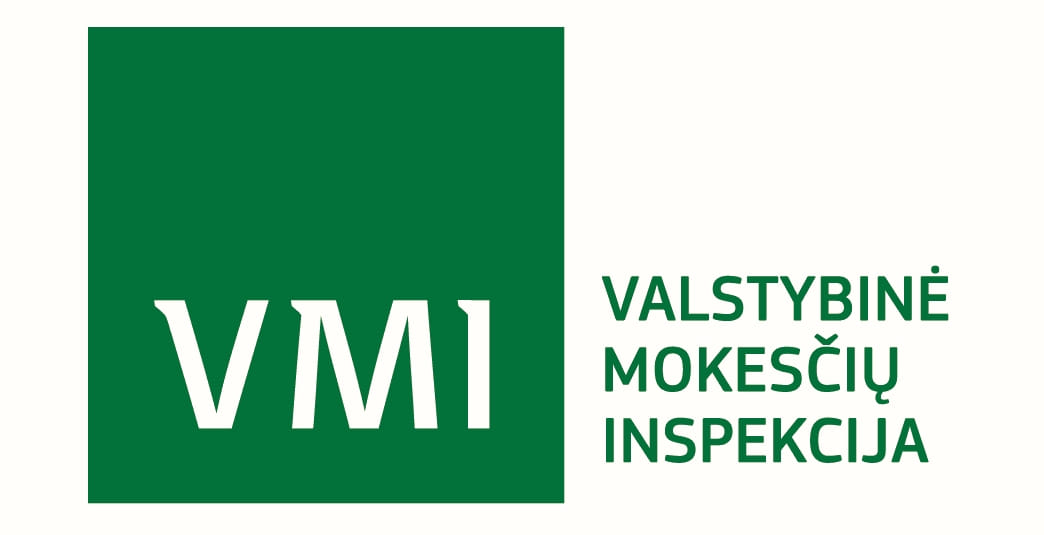About the Client
The State Tax Inspectorate (STI) under the Ministry of Finance of the Republic of Lithuania is a governmental agency responsible for tax administration in Lithuania. Its primary functions include tax collection, implementation of tax laws, and ensuring compliance with tax regulations. STI aims to provide efficient and transparent tax services, reduce tax evasion, and improve the overall tax environment. By utilizing modern technologies and data analysis, STI enhances the accuracy and effectiveness of tax collection, contributing to Lithuania’s financial stability and economic development.
Challenges
Lithuania has introduced fiscalization requirements for cash registers over 25 years ago, and those requirements stayed quite intact until 2023. This meant that as the technologies have undergone significant transformations, so did the customer’s expectations, however the fiscalization regime in the country did not meet those expectations and did not allow for the modernization of fiscalization ecosystem.
Key challenges included:
- Time Consuming Manual Cash Register Lifecycle Processes: Registration, deregistration, and status management required visits from certified technicians to STI local offices, slowing down processes and adding significant costs and administrative burden to businesses.
- Very Difficult Adoption of the Latest Technologies: Existing requirements did not provide taxpayers the opportunity to use more economical fiscal devices, such as cash registers on a mobile phone or cloud.
- No Real-Time Data: Legacy systems did not provide STI with real-time information to forecast tax collection, assess taxpayer compliance, plan onsite audits, leading to inefficiencies and high costs.
Solution
NRD Companies was invited to develop and provide the Smart Electronic Cash Registers Subsystem – i.EKA, a crucial component of the Smart Tax Administration System (i.MAS). The primary objective of i.MAS is to reduce the administrative burden on taxpayers, enhance income tracking, improve tax collection, and boost the efficiency of tax administration by implementing electronic services and transferring taxpayer transaction data to an electronic platform.
With the i.EKA system, users of cash registers periodically submit transaction data to tax authorities. This modernizes the use of cash registers and offers new e-services to businesses, aiming to lessen administrative loads, increase STI efficiency, and reduce the shadow economy.
The i.EKA project developed exclusive e-services for cash register users, facilitating periodic submission of transaction data to tax authorities and streamlining activities that typically require substantial financial and time resources.
Key i.EKA functions include:
- Remote Registration and Lifecycle Management of Cash Registers and Other Points of Sale: The service allows the business to automatically fill out the electronic technical passport, remotely register the cash register, change statuses, correct registration data, manage digital certificates required in the process of recording business transactions and transferring them to i.EKA.
- Virtual Fiscalization for Cash Registers and Other Points of Sale, Additional Functionalities for Cash Registers That Work Without a Permanent Internet Connection: This service creates the technical conditions for the automatic transfer of receipt data (for example, the amount of the receipt, VAT rates and amount) from cash registers or other payment means to the tax administrator, and for the automatic creation of an electronic log of cash transactions. Traders no longer need to maintain paper-based cash register journals, where daily report (Z) had to be glued in at the end of the working day and additional information had to be filled in.
The i.EKA system significantly reduces administrative costs for both STI and taxpayers by minimizing the investment and operational costs of maintaining cash registers. It also helps STI better understand taxpayer behavior, model risk profiles, and set audit priorities based on the collected information.
According to new technical requirements, two types of cash registers are available: one with a security module and one using i.EKA virtual fiscalization. Taxpayers can use regular cash registers, cash register applications on smart devices, or non-cash payment terminals adapted for these modes of operation. Receipt data must be signed with security modules and transferred to i.EKA periodically or using the “Virtual fiscalization” service before presenting the receipt to the buyer.
NRD Companies’ Solutions and Services Provided
NRD Companies contributed significantly to the i.EKA project by providing:
- Virtual Fiscal Device Management System (VFDMS©) Platform: This advanced platform, known for its versatility and robustness, served as the cornerstone for integrating essential i.EKA components seamlessly. Built on years of expertise and innovation, the VFDMS© Platform facilitated efficient data management, real-time processing capabilities, and ensured scalability to meet the evolving needs of the tax administration system. Its modular architecture allowed for customizable solutions that aligned perfectly with i.EKA’s requirements, enabling streamlined operations and enhanced user experience.
- Comprehensive Support: NRD Companies delivered end-to-end support throughout the i.EKA project lifecycle. Starting from detailed system analysis and customized design phases, our team meticulously implemented each component of i.EKA, adhering to rigorous testing protocols to ensure functionality, security, and compliance. Our deployment strategies were designed to minimize disruption and maximize efficiency, supported by ongoing operational assistance to maintain system integrity and optimize performance over time.
- Consulting / Applying Know-How: We leveraged our extensive experience serving retail customers to provide expert consulting and apply proven strategies to the i.EKA project, ensuring that our solutions were practical, efficient, and user-friendly.
Results
The i.EKA project has brought about significant improvements for businesses, the state, and ordinary consumers. Here are some key results:
- Serving Taxpayers Efficiently: Previously, registering cash registers required physical visits to STI customer service departments. With i.EKA’s digitization of cash register lifecycle services, taxpayers can now register their cash register solutions online, eliminating the need for physical visits.
- Paperless Fiscal Reporting: The requirement to print daily (“Z”) and monthly fiscal reports for cash registers is now obsolete. i.EKA-enabled checkout solutions automate the generation of electronic journals and closure of cashier shifts or trading days and submit the data to the STI without undue delay.
- Digital Record-Keeping: Businesses no longer need to keep paper records of cash transactions for 10 years. The transition to electronic solutions with virtual fiscalization removes the burden of paper-based storage.
- Streamlined Technical Support: Businesses opting for electronic solutions under i.EKA no longer need to physically go to STI and declare the cash register.
- Enhanced Transparency: STI now allows consumers to verify data submitted to i.EKA directly online, ensuring accuracy and transparency in dealings with tax administrators.
- Public Engagement: i.EKA encourages public involvement through features like QR code scanning on receipts. Residents can independently verify receipt authenticity and confirm whether data has been transmitted to STI, promoting transparency and civic awareness.
- Impact on VAT Collection: The introduction of the Smart Tax Administration System has shown promising results in reducing the VAT Gap in Lithuania. i.EKA is expected to further enhance VAT collection efficiencies, contributing to improved fiscal outcomes.
Replicability
The solutions implemented by the State Tax Inspectorate under the Ministry of Finance of the Republic of Lithuania could be replicated, and countries worldwide could enjoy the same benefits by retaining the services of NRD Companies. These benefits include:
- Modernization of fiscalization systems
- Reduction of administrative burden
- Enhanced data collection and compliance
- Remote registration and management
- Virtual fiscalization
- Analytics and insights from received data
SDGs Addressed

SDG 8: Decent Work and Economic Growth
By reducing administrative burdens and streamlining tax processes, the i.EKA system supports business growth and efficiency, fostering an environment conducive to economic activities and job creation.
SDG 9: Industry, Innovation, and Infrastructure
The i.EKA system leverages modern technology to create a reliable and efficient tax infrastructure, enhancing the capability of the State Tax Inspectorate and facilitating better service delivery. By modernizing the fiscalization system, i.EKA helps transition tax processes to a more sustainable and technologically advanced framework.
SDG 12: Responsible Consumption and Production
By reducing the need for paper checks and transitioning to digital records, the project promotes more sustainable consumption and production patterns. This helps in minimizing waste and conserving natural resources, contributing to more environmentally friendly practices in tax administration and business operations.
SDG 16: Peace, Justice, and Strong Institutions
The i.EKA project promotes transparency and accountability in tax administration, reducing opportunities for tax evasion and corruption. By enhancing the efficiency and transparency of the tax administration, i.EKA ensures more inclusive and equitable participation in the tax system.
SDG 17: Partnerships for the Goals
The project involves collaboration between government entities, taxpayers, and technology providers, showcasing a successful model of public-private partnership for achieving development goals.











